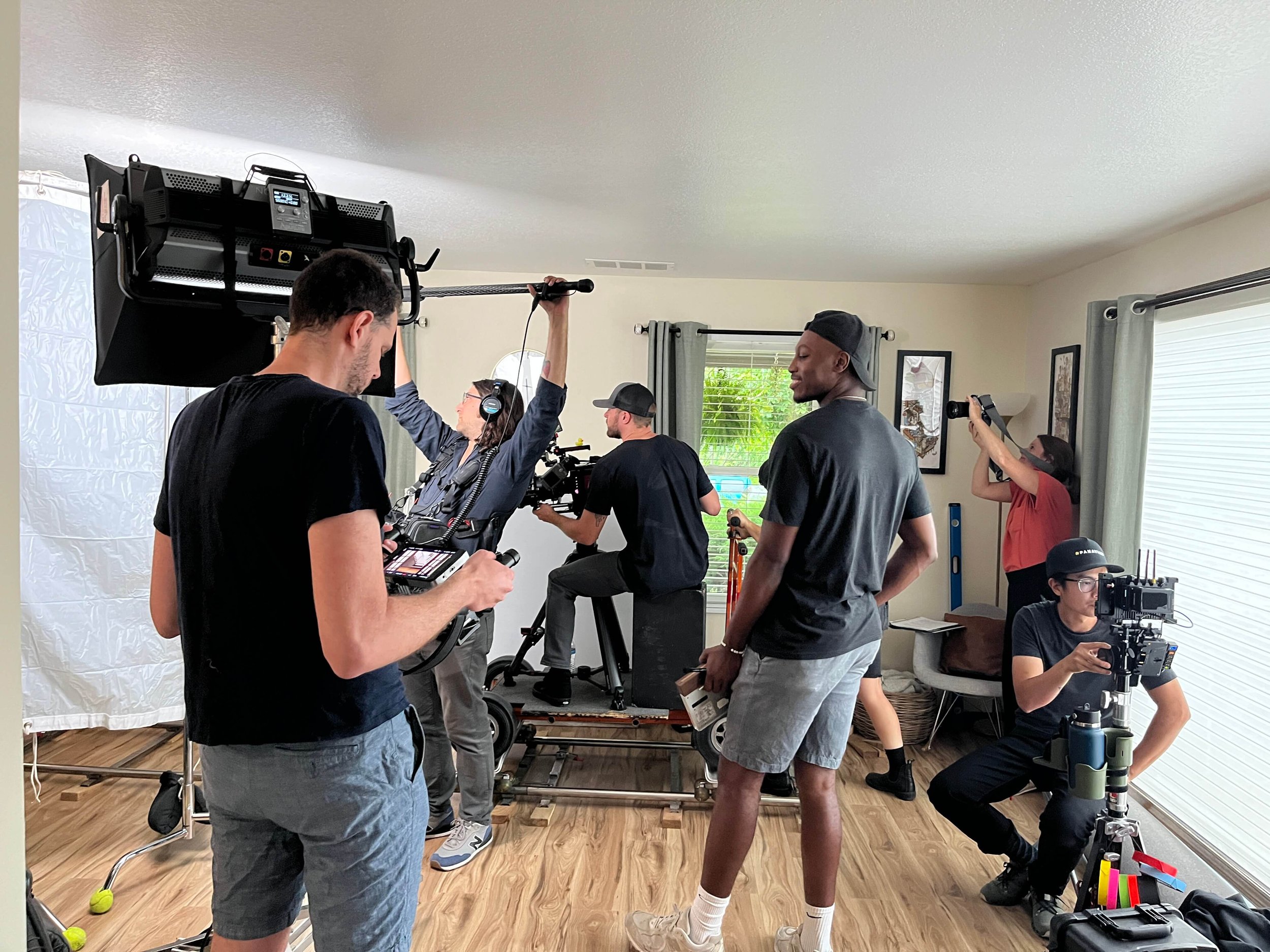2024 Video Content Strategies: DIY, Freelance, or Full-Service?
In 2024, video is not an optional medium to use in marketing campaigns and on company websites – it is crucial. Much like having a business website in the late 1990s was “nice to have,” by the early 2000s, you were behind the eight ball if you didn’t have one. Today, if your marketing strategy doesn’t include ongoing video production and content distribution, you’re just as behind.
The statistics from 2023 highlight this shift: online videos made up 82.5% of all web traffic (DemandSage) and 95% of messages delivered through video are retained by viewers. Moreover, 90% of marketers credit video with enhancing lead generation, and 86% attribute an increase in website traffic to video content (Wyzowl).
In this article, we’ll explore the options of DIY video vs. hiring a freelancer or a full-service video production company, outlining the pros and cons of each approach.
Key Points
If you don’t have time to read the full article, here are some main takeaways:
Video Production Company
Pros: Expertise, full-service support, and high-quality equipment
Cons: Higher cost and potentially longer pre-production
Freelance Videographer
Pros: Cost-effective, flexibility, and speed
Cons: Varying levels of experience and limited pre-production support
DIY Video Production
Pros: Cost-effective in the short term and good for informal videos
Cons: Potential lack of professionalism and limited equipment quality
Hiring a Video Production Company
Some of the biggest pros to hiring a full-service video production company include:
Expertise: A video production company brings a wealth of knowledge and experience in various aspects and styles of video production, ensuring high-quality outcomes. You’re getting a whole team of professionals, which, depending on the scope of the project, can include producers, cinematographers, sound engineers, copywriters, editors, colorists, and more.
Professionalism: They uphold professional standards in all stages of production, ensuring reliability and consistency in the final product.
Strategic Input: These companies offer valuable insights into how best to convey your message, target your audience, and achieve your marketing and fundraising objectives through video.
Access to High-Quality Equipment: Professional video production companies have access to the latest and most advanced equipment, including backup equipment as needed, which is crucial for producing top-notch videos.
Full-Service Support: They handle everything from concept development to post-production and even distribution advice, providing a comprehensive service package.
Creativity: With a team of creative professionals, they bring innovative ideas and fresh perspectives to the table, enhancing the storytelling aspect of your video.
Time Efficiency: Their experience and resources enable them to complete projects within your deadlines.
Some of the potential cons are:
Higher Cost: Professional video production services can be expensive due to their expertise, high-quality equipment, and comprehensive service offerings
Longer Pre-Production: Understanding your specific industry and needs might require a longer pre-production phase to ensure the video aligns with your brand's message and goal.
Potential Creative Vision Disagreements: There might be differences in creative vision between you and the production company, which could lead to conflicts or compromises in the final product.
Hiring a Freelance Videographer
Choosing a freelance videographer can be a middle ground between hiring a full-service video production company and undertaking DIY video production.
Pros:
Cost-Effective: Generally, hiring a freelancer is more budget-friendly than a full-service company, especially for short-term projects. This can be an advantage for smaller projects or businesses with limited budgets.
Flexibility and Speed: Working with a freelancer often means more flexibility in scheduling and potentially quicker turnaround times, as you're coordinating with an individual rather than a larger team.
Direct Communication: Directly working with the person filming your video can lead to a more straightforward communication process, allowing for quick adjustments and feedback.
Cons:
Limited Pre-Production Support: Freelancers typically focus on filming and may not offer comprehensive pre-production services like storyboarding, scripting, or location scouting.
Responsibility for Creative Direction: You'll need to provide the creative vision, plan the content, and handle other preparatory tasks, which can be time-consuming and challenging if you lack experience in video production.
Varying Levels of Expertise: Freelancers may have varying levels of experience and creative skills. It's crucial to review their portfolio to ensure their style and quality align with your project needs.
Additional Post-Production Requirements: Depending on the freelancer's skill set, you might need to hire additional professionals for editing, color grading, or sound design to achieve a polished final product.
Equipment Limitations: Some freelancers might not have access to high-end equipment that a full-service company would, potentially affecting the video's quality.
DIY Video Production
Do It Yourself (DIY) video production refers to creating and producing video content without the involvement of professional video production companies. This approach is often adopted by individuals or organizations looking to control the creative process and minimize costs. DIY video production can range from simple, smartphone-filmed content to more sophisticated productions using amateur or semi-professional equipment.
Pros:
Cost-Effective in the Short Term: Initially, DIY video production can be less expensive as it typically involves using existing equipment and resources, and does not incur professional service fees.
Creative Control: You have complete authority over the creative vision, style, and execution of the project, allowing for personalized storytelling and branding.
Skill Development: Engaging in DIY video production offers an opportunity to acquire new skills in filming, editing, and storytelling, enhancing personal or organizational capabilities.
Ideal for Informal Content: DIY videos can be effective for creating short-form, authentic content for social media platforms, where a polished, professional look is not always necessary.
Cons:
Potential Lack of Professionalism: Without professional expertise, DIY videos may lack the polish and technical quality of professionally produced content, potentially impacting audience perception.
Limited Equipment Quality: DIY productions often have to rely on lower-quality equipment, which can affect the video's visual and audio fidelity compared to professional-grade equipment.
Time-Intensive: Managing all aspects of video production (planning, shooting, editing) can be very time-consuming, diverting attention and resources from other important tasks.
Unpredictable Results: The final quality and effectiveness of DIY videos are not guaranteed. Poor outcomes might lead to wasted time and effort, and in some cases, the need to eventually seek professional help, impacting return on investment and brand reputation.
Ready to embark on your video production journey? Get in touch with us to start a conversation and receive a tailored quote for your project.



